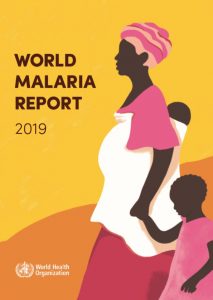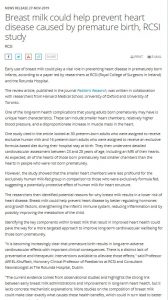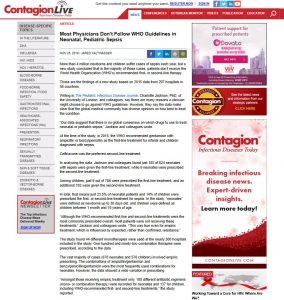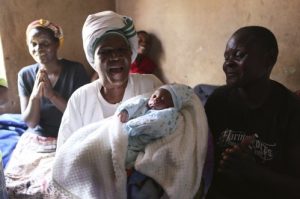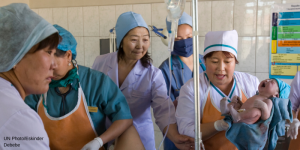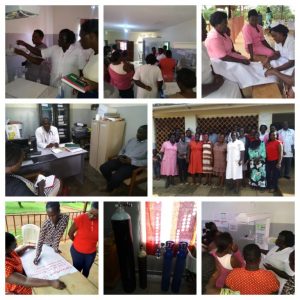More pregnant women and children protected from malaria, but accelerated efforts and funding needed to reinvigorate global response, WHO report shows
This article was originally published by Reliefweb The number of pregnant women and children in sub-Saharan Africa sleeping under insecticide-treated bed nets and benefiting from preventive medicine for malaria has increased significantly in recent years, according to the World Health Organization’s World malaria report 2019. However, accelerated efforts are needed to reduce infections and deaths … Continued
Breast milk could help prevent heart disease caused by premature birth, RCSI study
This article was originally published by the Royal College of Surgeons in Ireland via EurekAlert Early use of breast milk could play a vital role in preventing heart disease in prematurely born infants, according to a paper led by researchers at RCSI (Royal College of Surgeons in Ireland) and the Rotunda Hospital. The review article, … Continued
Antenatal care in Kenya needs improvement
This article was originally published on The Conversation Maternal and neonatal mortality has remained high in low-resource settings despite progress in recent years. The estimated maternal mortality ratio in Kenya is 342 per 100,000 live births, a startling 18 times the rate in the United States. High quality prenatal care can address these high levels … Continued
Could adding folic acid to salt curb Ethiopia’s sky-high rate of spinal cord deformities?
This article was originally posted on ScienceMag By Meredith Wadman Tony Magana, chief of neurosurgery at Mekelle University School of Medicine in Ethiopia’s Tigray province, confronts his country’s high prevalence of neural tube defects nearly every day. His team operates on more than 400 babies annually to repair these severe, often lethal birth malformations, in … Continued
Most Physicians Don’t Follow WHO Guidelines in Neonatal, Pediatric Sepsis
This article was originally published by Contagion Live More than 4 million newborns and children suffer cases of sepsis each year, but a new study concluded that in the majority of those cases, patients don’t receive the World Health Organization (WHO’s) recommended first- or second-line therapy. Those are the findings of a new study … Continued
Saudi Arabia delivers ‘early warning’ on preterm births
This story was originally published by Arab News JEDDAH: Up to 60,000 babies are born prematurely every year in Saudi Arabia with hospitals in the Kingdom spending up to SR60,000 ($16,000) on individual treatment and specialized care, a leading pediatrician told Arab News. Dr. Sawsan Hussein Daffa, consultant neonatologist and head of pediatrics department at the Aya … Continued
Train more midwives to save lives
This story was originally published by The National Disturbing figures were released in March this year that Papua New Guinea has the lowest number of skilled birth attendants and needs 6,000 more to meet global standard. The 2019 Maternal and Newborn Health Task Force report says high maternal and newborn mortality in the country is … Continued
No training, no gloves: Zimbabwe’s desperate childbirths
This article was originally published by AP By Farao Mutsaka When her contractions became unbearably painful, 18-year-old Perseverance Kanyoza rushed to a maternity hospital in Zimbabwe’s capital, Harare. But the doors were closed amid a weekslong strike by public health workers. With no money for private care, panic set in. A hospital guard directed her … Continued
Target to reduce newborn deaths within reach
This article was originally published by FIGO Impressive progress has been made across the world to improve the health and survival rate of young children. The number of infants who die before the age of five has more than halved since 1990, from 93 deaths per 1000 live births to 39 per 1000 live births … Continued
Newborn care units at Health Centre IV: the MANeSCALE experience
From explaining how to mix drugs in the right doses for premature babies to explaining how a radiant warmer works, Nursing Officer Sarah Mirembe clearly knows what she is doing given the confidence she exudes. It is apparent from her talk that she has no problem with dump dusting and mopping her workstation in order … Continued
